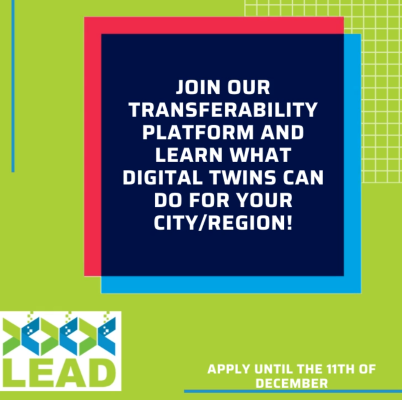The LEAD project: Digital Twins for low emission last mile logistics
One of the disruptive innovation trends in urban freight transport observed by GECKO is the surge of on-demand logistics operations, which are putting current last-mile delivery systems under growing pressure. This phenomenon can be defined as an “uberisation of logistics” and it implies potential negative impacts on urban contexts, as well as a growing market unpredictability.
The H2020-funded LEAD project aims at addressing the challenges brought by these developments. It will do so by creating digital twins of urban logistics networks in 6 TENT-T urban nodes (Madrid, The Hague, Budapest, Lyon, Oslo and Porto), to test different innovative solutions for city logistics, to address the requirements of the on-demand economy, while aligning competing interests and creating value for all different stakeholders.
These experimentations will allow for the development of a variety of logistics solutions for shared, connected, and low-emission logistics operations, empowered by an adaptive modelling approach and Digital Twin models. Agent-based (ABM) models will be used to enable city logistics stakeholders to recognise their roles and business models, including all relevant operational, tactical, and strategic decisions in the Digital Twin, mirroring value cases in the reality of city life.
The long-term vision of LEAD is to design an Open Physical Internet-inspired framework for Smart City Logistics that incorporates the created Digital Twins, laying the foundations for the development of large-scale city Digital Twins.

Six external local authorities will join LEAD’s Transferability Platform, and benefit from a tailored transferability programme building upon the project’s results. This includes capacity-building, training, technical visits, interactive workshops, and customised feedback.
Want to find out more and know how to apply? Find out here.
Deadline: 11th of December 2020
To know more about the LEAD project, visit its website and follow it on Linkedin.


